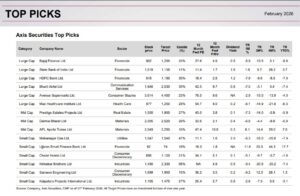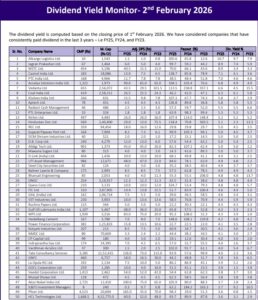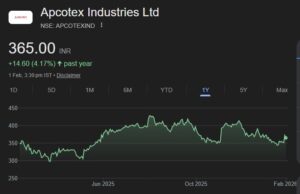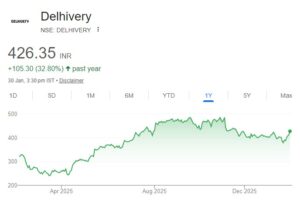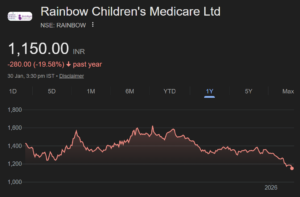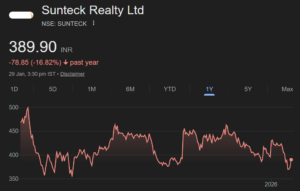The courage to press on, regardless of whether we face the calm seas or rough seas, and especially when the market storms howl around us, is the quintessential attribute of the successful investor.
People have a peculiar way of investing. They are happy to invest more and more when the valuations are high and exorbitant and less and less when the valuations are a-begging.
They deal with all of their other buying decisions in the logical way i.e. buy when the valuations are low and sell when the valuations are high.
Then why the difference when it comes to investments?
You can see the evidence of this irrational behaviour when it comes to investments:
What this chart tells you is that when the sensex was at low levels net inflows into equity mutual funds were negative i.e., investors were selling equity funds.
However, when the sensex rose, inflows into equity mutual funds increased i.e., investors were buying equity funds.

E.g., in CY2002 when the Sensex was around 3200 levels, inflows into equity mutual funds were (Rs. 4,517crs). On the other hand in CY2007 when the SENSEX was in the range of 14,000 to 20,000, inflows into equity mutual funds were higher totaling Rs.1,07,189crs.
This means that people were willing to invest at higher levels than at lower levels.
But see the Gold investment behaviour:
Interestingly, people exhibit totally contrasting behaviour when it comes to gold i.e. they buy more when the prices are low and buy less when the prices are high.
See this chart. It shows that the demand for gold increases when gold prices are at low levels. The demand remains steady when the prices are high.

Rationale for the perplexing contrasting behaviour:
How does one explain the phenomenon that the investor who does not hesitate to pump in more and more money when the share prices are high (and shuns the equity market when the prices are low) does the reverse when it comes to gold i.e. buys more gold when the gold prices are low and less when the gold prices are high?
Time Horizon:
The reason for this contrasting behaviour is simply this: People have different time horizons.
Gold is seen as a long-term investment. Nobody buys gold with the intention of selling it in the short or medium term. People buy gold with the firm intention that it will remain in the family for generations to come. One buys in the fond hope that the upcoming generations will use the gold and jewellery for perpetuity. That is why when gold prices fall, people are happy to buy more and more, without a trace of anxiety. That is also why people are not concerned with falls in gold prices – they don’t rush out every day to check whether gold prices are high or low. In most people are blissfully unaware of the quantity or value of gold that they may have in their own household.
In contrast, people are unable to exhibit the same long-term sagaciousness when it comes to equity investments. Equity is always seen as a short-term or medium-term investment. People are perpetually checking out the stock prices and every gyration in the market causes euphoria or depression. Because the emphasis is on such a short-term outlook, every movement of the market gets exaggerated and extrapolated into the belief that if the shares are on a downward trajectory then they will perpetually be headed that way and if they are on an upward trend then they will always be headed that way. The constant fear and greed is what keeps people behaving in an irrational way.
Why you should prefer Equities to Gold:
There is more than enough material to show that equities are definitely the superior investment class as compared to all other alternatives including gold.
If you look only at the sensex, even after the terrible correction that it suffered, you would, over a period of 20 years, earned a return of 17.16% per annum as compared to a measly 9.62% in gold.

What this means in real terms is this: If you had invested Rs. 1,00,000 20 years ago and left it untouched in the sensex, it would be worth a mind-boggling Rs. 23,75,000. In contrast, your investment in gold would be worth only Rs. 6,28,000.
Change your investing style – not the asset class:
If you’ve had a bad experience with investments in equity, the problem lies with your investment style; not the asset class.
The solution: Think long-term – the way you think about gold.
Market has crashed: Now What?
Equity markets are traditionally volatile, always witnessing sharp upward and downward movements. However, it is important to always bear in mind that this volatility is a short-term to medium-term phenomenon. There is no need to fear volatility. Instead you must behave rationally. Understand what the problems are, what are the reasons for the volatility and proceed on the conviction that short-term problems will always be ironed out in the long-term.
Difficult times are always the best times to invest. The valuations are a-begging and bargains are to be had everywhere:
Look at the table given below. It analyzes the performance of investments made after steep falls in the sensex.

Row A gives returns after 1 and 3 years from the index bottom. Row B gives returns after 1 and 3 years from an index that is 15% above the bottom (more relevant as bottoms are hard to predict) Returns under 1 year are absolute and returns over 1 year are annualized.
As you can see, a person who bought shares after they had corrected substantially from the peaks has been laughing all the way to the bank.
The current problems:
The problems in the equity market presently are partly domestic and partly international. At the domestic level, the problems are of a spike in inflation leading to a hike in interest rates which in turn has led to fears of a slow down in the economy.
Already we can see that the inflation is petering out slowly but steadily. Over time, inflation is bound to return to tolerable levels. When that happens, the RBI will relax the fiscal measures and loosen the liquidity straps and put the economy on an upward growth trajectory again.
At an international level, the sub-prime crises has claimed several high profile victims including Bear Sterns and Lehman Brothers. It is feared that other big guns like Morgan Stanley and Merrill Lynch may join the list.
However, the US Government has taken proactive steps to stem the crises. Over time, these are bound to show results.
What you should do in these challenging times:
The best thing you can do is to act rationally!!
Recommended course of action for an investor:
(i) First and foremost, evaluate what your asset allocation is. Out of your total corpus, how much is invested in equities and how much in debt.
(ii) What are your monetary needs likely to be in the next three to five years? If you have any planned expenditure in the ear future (e.g. wedding, education, travel etc, keep that money aside (invest in FMPs).
(iii) If you decide that you have surplus funds that you won’t need for the next couple of years then there is no better place than equities to park those funds. But wait – don’t invest everything in one shot. Adopt the time and tested technique of systematic investments. The STP (Systematic Transfer Plan) is the best method because your money gets systematically transferred from the debt scheme to the equity scheme, all the while earning interest for you.
(iv) Remember John Bogle’s sagacious words “The courage to press on, regardless of whether we face the calm seas or rough seas, and especially when the market storms howl around us, is the quintessential attribute of the successful investor”.
Whoa! But what about the Risk to my money?
There is a huge difference between perceived risk and actual risk. It may seem strange but when the markets are booming, euphoric and exuberant, you are running a greater risk though it may not appear to be so at that time of irrationality. Your perception is that there is no risk that you are actually facing a real risk.
In contrast, in times of gloom and doom like the present one, there is a perception of great risk though the reality is otherwise.
Yes there are challenges to the economy. High inflation, high interest rates, tight liquidity, slowing GDP growth are not factors that can be ignored. But are these likely to last forever? No. Already, one can see signs of a dip in inflation and over the next few months we will be able to see a relation in the monetary policy.
When that happens, the markets will zoom and you will feel very sorry for yourself if you didn’t take advantage of the present moment.
Remember the best investments are made in terrible times!
